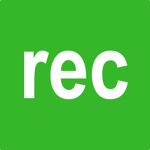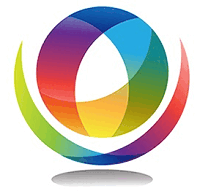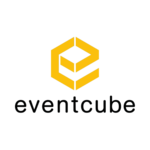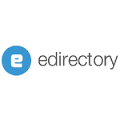Description

Dashboard

RecDesk
Comprehensive Overview: Dashboard vs RecDesk
As of my last update, I don't have specific information on a product named "Dashboard" specifically within the software space you might be referring to. If Dashboard is a generic term for analytics and reporting tools or a specific brand in a category, I would need more details to provide an exact overview.
However, I can provide information on RecDesk, a well-known platform in the recreation management software space. Here's a comprehensive overview of RecDesk:
RecDesk
a) Primary Functions and Target Markets:
- Primary Functions:
- RecDesk is a cloud-based recreation management software designed to simplify the management of activities, events, and facilities for community centers, parks, and recreation departments.
- It offers features such as online registration, facility scheduling, membership management, program management, league management, and financial reporting.
- It provides a user-friendly interface for both administrators and the public to engage seamlessly with recreational activities and programs.
- Target Markets:
- Municipal parks and recreation departments.
- Community centers and YMCAs.
- Non-profit recreational organizations.
- Campgrounds and sports leagues.
b) Market Share and User Base:
- As a specialized tool, RecDesk competes with products like ActiveNet, PerfectMind, and CivicRec in the recreation management domain.
- While detailed market share and user base numbers are proprietary and fluctuate based on product developments and marketing efforts, RecDesk is recognized for its strong presence in small to medium-sized municipalities.
- Its user base primarily consists of organizations seeking cost-effective and user-friendly solutions for managing community and recreational activities.
c) Key Differentiating Factors:
- Simplicity and User Experience: RecDesk is often lauded for its intuitive user interface, making it accessible for users with varying degrees of technical expertise.
- Comprehensive Feature Set: While being user-friendly, RecDesk does not compromise on the functionality, offering a wide range of features catering specifically to recreation management needs.
- Cost-Effectiveness: RecDesk provides an attractive pricing model for smaller organizations that may find competitors' pricing to be prohibitive.
- Customer Support and Education: RecDesk is known for its strong customer support and extensive user resources, providing training and ongoing support to users effectively.
- Integration and Customization: It offers integrations with third-party applications and customizable options that enable users to tailor the software to suit their specific needs.
In contrast to broader "dashboard" products, which may span various industries and serve functions like sales analytics, finance reporting, and operational visualization, RecDesk is a niche product dedicated specifically to the recreation management sector. Suppose "Dashboard" refers to another specific software solution or product. In that case, more context is needed to provide a meaningful comparison beyond the recreation-focused RecDesk tool.
Contact Info

Year founded :
2010
Not Available
Not Available
United States
Not Available

Year founded :
Not Available
Not Available
Not Available
Not Available
Not Available
Feature Similarity Breakdown: Dashboard, RecDesk
To provide a feature similarity breakdown for Dashboard and RecDesk, I'll focus on the common core features, user interface comparisons, and unique features for each product.
a) Core Features in Common
Both Dashboard and RecDesk are tools used for recreation management and typically include the following core features:
-
Activity & Program Management: Both platforms offer functionalities to create, manage, and schedule activities and programs, allowing organizations to efficiently handle bookings and registrations.
-
Facility Management: These products include capabilities for managing facility reservations, scheduling, and maintenance tasks, ensuring optimal use of space and resources.
-
Membership Management: Both systems provide tools for managing memberships, including sign-ups, renewals, and member information tracking, enabling smooth membership operations.
-
Payment Processing: They offer integrated payment solutions, allowing users to process transactions and manage financial records effectively, ensuring secure and streamlined payment collection.
-
Reporting & Analytics: Both platforms have reporting tools to generate insights into operations, helping organizations make data-driven decisions with relevant analytics.
b) User Interface Comparison
-
Dashboard: Typically focuses on a straightforward, minimalist design, offering ease of navigation and quick access to vital information. It often emphasizes streamlined workflows and features that cater to a range of users, from beginners to advanced.
-
RecDesk: Known for its user-friendly interface that prioritizes simplicity and ease of use. It might offer more visual elements, such as icons and color coding, which enhance user experience, especially for those less tech-savvy.
Overall, both platforms strive for intuitive interfaces but may differ in visual complexity and workflow customization options.
c) Unique Features
Dashboard:
-
Customizable Widgets: Dashboards may offer more customization of the main user dashboard, allowing users to pick and choose widgets or data sources that matter most to them, potentially providing a more tailored experience.
-
Advanced Integrations: Enhanced connectivity with other software or services might be available, enabling more comprehensive data sharing and process automation for users needing more integrations.
RecDesk:
-
Community Engagement Tools: RecDesk may place a stronger focus on community-centric features, such as community calendars, newsletters, or forums, enhancing interaction with the broader community.
-
Mobile App Support: While both may offer mobile functionality, RecDesk might emphasize a fully-featured mobile app, allowing users and administrators alike to manage activities on-the-go with ease.
Each product targets similar market needs but differentiates through unique features that cater to distinct user preferences or operational requirements. This breakdown helps highlight areas where organizations might find value depending on their specific needs and priorities.
Features

User Analytics
Performance Metrics
Financial Overview
Sales Insights
Customer Support

Program Management
Communication Tools
Financials
Facility Reservations
Membership Management
Best Fit Use Cases: Dashboard, RecDesk
Dashboard and RecDesk are tools designed to serve different purposes and cater to various needs in business and project management. Let's break down the best-fit use cases for each:
Dashboard
a) For what types of businesses or projects is Dashboard the best choice?
-
Business Intelligence and Analytics: Dashboards are an ideal choice for businesses that need to visualize data, generate reports, and gain insights from multiple data sources. They are commonly used in industries like finance, marketing, and retail.
-
Performance Tracking: Companies focusing on key performance indicators (KPIs) and metric tracking can benefit from dashboards to monitor performance real-time.
-
Project Management: Dashboards are useful for teams needing to track project progress, deadlines, and resources. They provide a centralized view of project data, aiding in better management and decision-making.
-
Operations Management: For businesses with complex operations, dashboards can help monitor supply chain metrics, operational costs, and inventory levels.
d) How do these products cater to different industry verticals or company sizes?
-
Industry Verticals: Dashboards are versatile and can be adapted for various industries, including finance, healthcare, education, and manufacturing. They can translate industry-specific data into actionable insights.
-
Company Sizes: From startups to large enterprises, dashboards scale with the complexity of data needs. Smaller businesses might use simpler dashboards while large corporations may require advanced, integrated systems with in-depth analytic capabilities.
RecDesk
b) In what scenarios would RecDesk be the preferred option?
-
Community and Recreation Management: RecDesk is tailored for managing recreation centers, community programs, and sports leagues. It streamlines tasks like scheduling, managing memberships, and processing registrations.
-
Parks and Recreation Departments: Municipalities and local governments benefit from RecDesk to manage public facilities, coordinate community events, and handle registrations for classes or activities.
-
Nonprofit Organizations: Organizations offering community services or running events can use RecDesk to manage volunteers, participants, and resources efficiently.
d) How do these products cater to different industry verticals or company sizes?
-
Industry Verticals: RecDesk specifically targets the niche of recreation management. It serves parks, recreation departments, community centers, and nonprofit organizations focused on community services.
-
Company Sizes: Typically aimed at small to medium-sized organizations, RecDesk provides scalable solutions that cater to growing needs while maintaining focus on community-driven activities and programs.
In summary, Dashboards are suited for businesses needing data visualization and performance tracking across various industries and company sizes, while RecDesk specializes in managing recreational activities and community services, making it a preferred choice for public sector entities and nonprofit organizations.
Pricing

Pricing Not Available

Pricing Not Available
Metrics History
Metrics History
Comparing undefined across companies
Conclusion & Final Verdict: Dashboard vs RecDesk
To provide a comprehensive conclusion and final verdict for the two products, Dashboard and RecDesk, I will break down each component as requested:
a) Best Overall Value
Overall Value Determination:
-
Dashboard: Known for its comprehensive analytics and highly customizable interface. It caters mainly to users who need extensive data analysis capabilities and are willing to invest time in setting up and learning the tool to its fullest potential.
-
RecDesk: Specializes in recreation management software, offering robust features tailored for community programs and facility management. It typically appeals to organizations looking for an out-of-the-box solution to manage their recreational operations more effectively.
Verdict: The product offering the best overall value depends on the user's primary needs. If the user's focus is on recreation management with less emphasis on customization and more on ease of use, RecDesk is likely to offer better value. However, for users needing detailed analytics and reports, Dashboard provides a better platform, despite being potentially more complex and time-consuming to implement.
b) Pros and Cons
Dashboard:
-
Pros:
- Highly customizable and scalable to various data scenarios.
- Strong analytics and data visualization tools.
- Suitable for users with advanced data needs.
-
Cons:
- Potentially steep learning curve for complex functionalities.
- Might require significant initial setup time and effort.
- Best suited for users or teams with dedicated IT or analytical expertise.
RecDesk:
-
Pros:
- Tailored for recreation management with specialized features.
- User-friendly interface, easy for non-technical users.
- Quick setup and deployment for standard recreational operations.
-
Cons:
- Limited in customization compared to more general-purpose analytic tools.
- May not fully meet needs outside of recreation management.
- Pricing could become a factor if extensive customization or scale is necessary.
c) Recommendations for Users
-
Identify Primary Needs: Users should clearly outline their primary needs and goals. If their main concern is related to community recreation management, RecDesk is likely a better fit. For more complex data analysis tasks, Dashboard would serve better.
-
Evaluate Team Capability: Consider the technical expertise of the team. Teams with strong technical skills might benefit from the flexibility of Dashboard, while those looking for ease and simplicity might prefer RecDesk.
-
Consider Future Growth: Analyze not only the current needs but also anticipate future requirements. If there's a possibility of scaling beyond recreation management, ensure the chosen platform can adequately support that growth.
-
Trial Periods: If available, make use of trial periods for both platforms to evaluate which better suits your processes and stakeholder preferences.
Conclusion: The choice between Dashboard and RecDesk largely depends on the specific needs and resources of the organization. Both have their strengths and are industry leaders in their respective domains. Users should consider their immediate and long-term needs, the expertise available to them, and potentially test each platform to determine which solution aligns most closely with their strategic objectives.
Add to compare
Add similar companies



